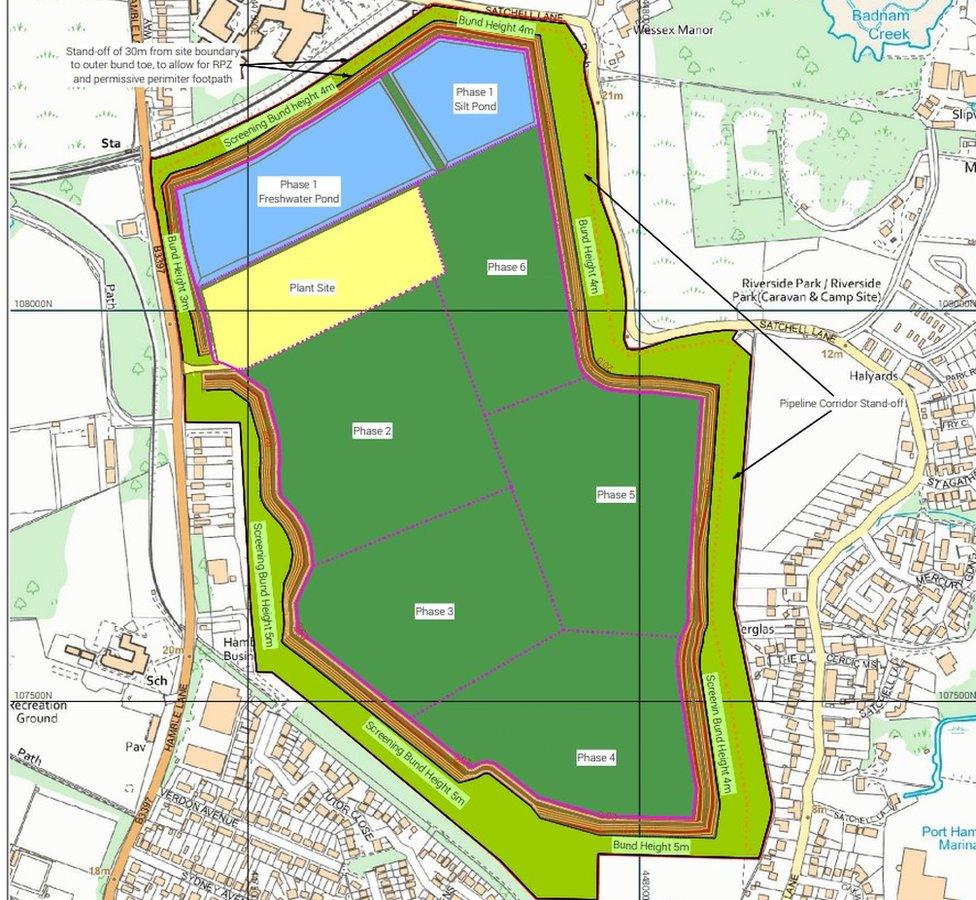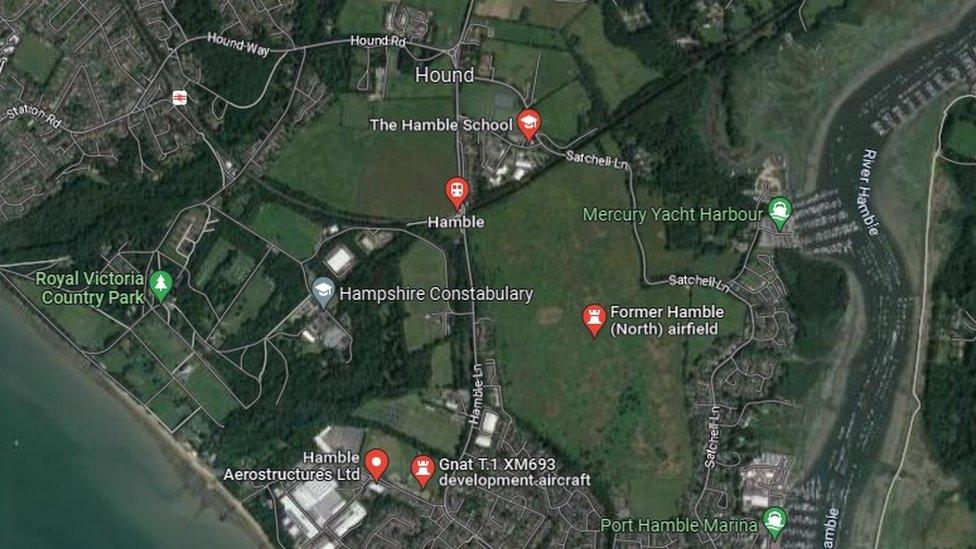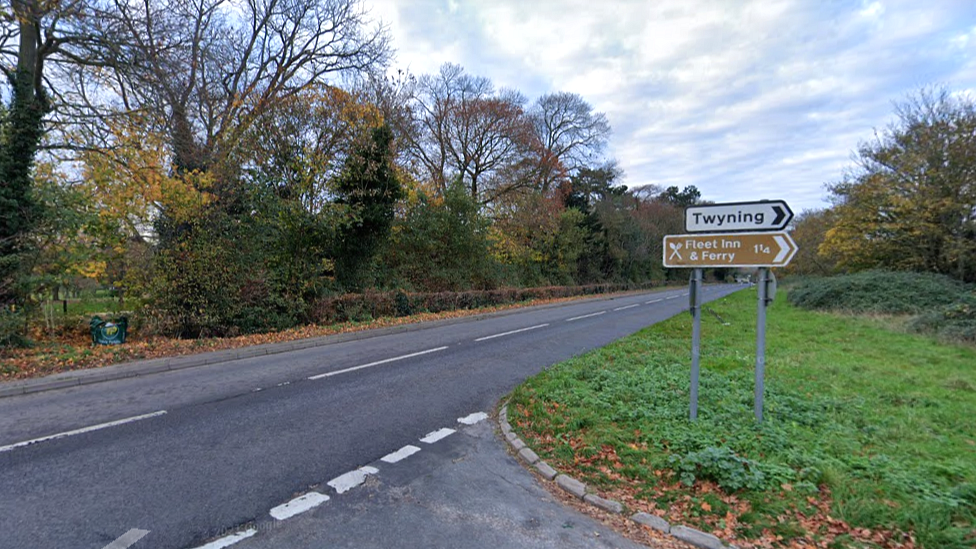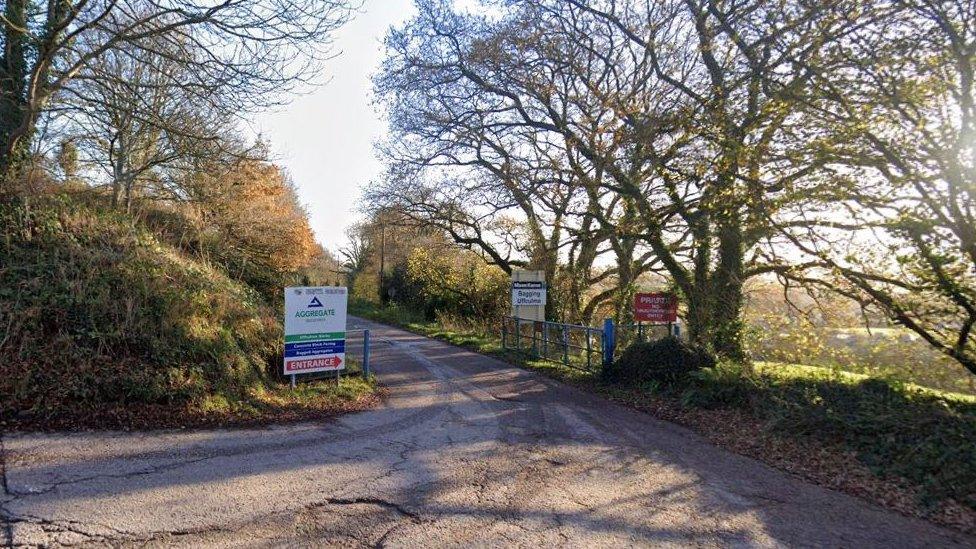Hamble Airfield: Olympian Dani Rowe backs fight against quarry plans
- Published

Dani Rowe (left) with Laura Trott and Joanna Rowsell after winning the team pursuit at London 2012 Olympic Games
An Olympic cyclist has echoed fears from residents over plans to turn a former airfield site into a quarry.
Gold medal-winning cyclist Dani Rowe MBE said she was "very concerned" over the proposal at Hamble Airfield, Hampshire, having grown up in the area.
Concrete and cement supplier Cemex submitted the quarry plans to Hampshire County Council in 2021.
More than 1,600 letters have been lodged against the quarry plans following a public consultation.
Cemex has been contacted for comment on the issues raised.
It is proposing using the site, which was an airfield until the mid-1980s, to extract 1.7million tonnes of sand and gravel over the course of seven years. It would be infilled over a further six years.
Comments from the public consultation on the plans include concerns over traffic growth, air and noise pollution as well as the potential for future health problems caused by the dust the quarry would generate.

Proposed site plan for the quarry in Hamble
Rowe said: "I grew up in Hamble, riding and exercising on the airfield - Hamble Lane has a cycle lane named after me.
"I am very concerned that using the airfield to extract grit will prevent children and adults from using the airfield to exercise.
"I also feel that anyone using the cycle way, pedestrian or cyclist, will also be put at greater risk by quarry vehicles."
Students from Hamble School, where Rowe first started her cycling career, have sent a letter to Hampshire County Council urging the authority not to back the plans.
They said: "This quarry will impact our education. It is only 150m from our school, we are concerned about the amount of dust and air pollution the quarry may cause and what respiratory issues may impact us in the future.
"At break time and lunchtime we go outside to spend time with our friends, as we know this has a positive impact on our mental health. We will no longer be able to do this."

Cemex is proposing using the site to extract 1.7million tonnes of sand and gravel
Cemex previously explained there would be an estimated 90 movements, to and from the site, each day.
It said 45 loads of aggregate would leave the site per day if the quarry were to open five and a half days a week.
It plans to use the 60-hectare site from Monday to Friday, between 0700 - 17:00, and between 0700 - 12:00 on Saturday - excavating up to 7m (23ft) deep.
Hamble Peninsular Residents Group, which is leading a campaign against the scheme, said the impact on the village would be "dire" and alongside the health, safety and traffic concerns would also lead to a "big economic downturn".
Simon Hand, chair of Hamble Parish Council, said the quarry would have a "hugely negative effect on the ability to travel in and out of Hamble, and will impact the day-to-day life of our residents, our school children, the ability of our businesses to recruit and thrive, and the number of visitors upon whom so many of our hospitality and marine businesses rely".
The Environment Agency also shared concerns on the consultation about the impact of the perfluoroalkyl and polyfluoroalkyl substances (PFAS), which are sometimes called "forever chemicals".
As part of the restoration plan after the area stops being used as a quarry, Cemex is proposing to rebuild the area by planting lowlands of acid grassland, deciduous woodlands, ponds, native hedgerow and more than 20,000 trees and shrubs.
Hampshire County Council said the planning application, external would be considered later in the year by its regulatory committee.
It added: "This will include full consideration of the responses received during the stages of consultation as part of the planning process, including those from statutory consultees and other interested parties."

Follow BBC South on Facebook, external, Twitter, external, or Instagram, external. Send your story ideas to south.newsonline@bbc.co.uk, external.
Related topics
- Published27 January 2023

- Published5 January 2023
